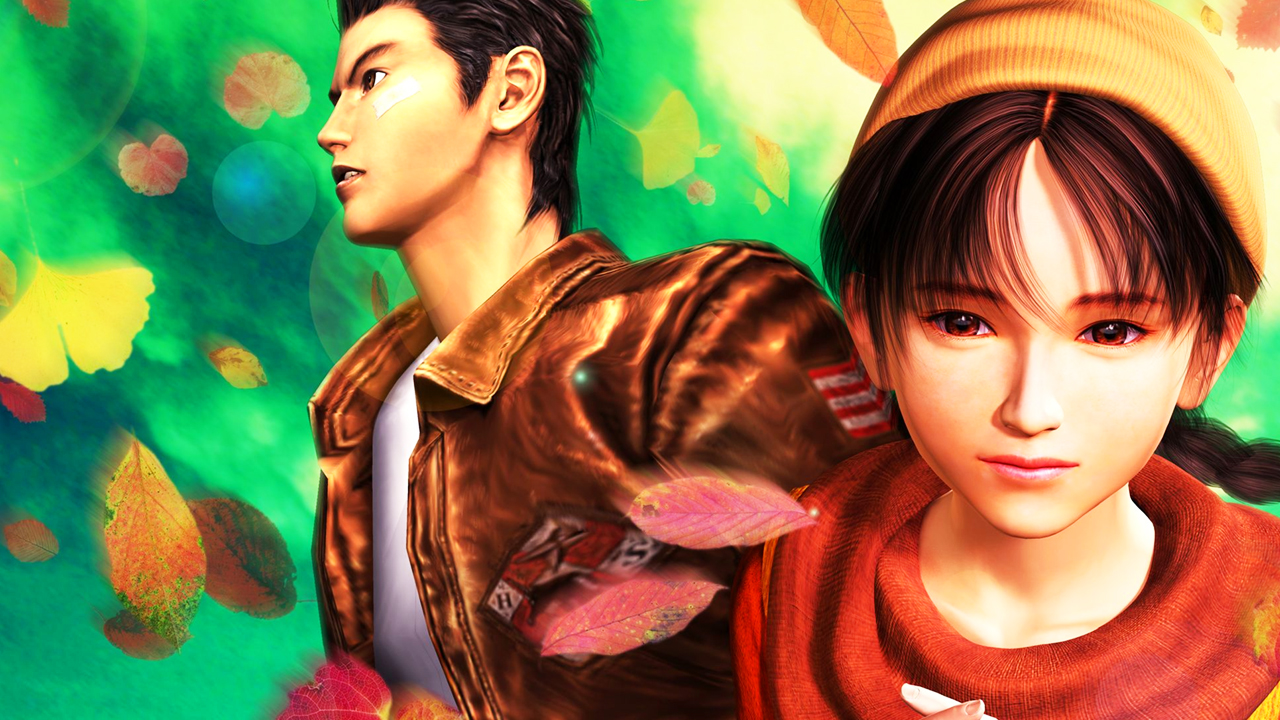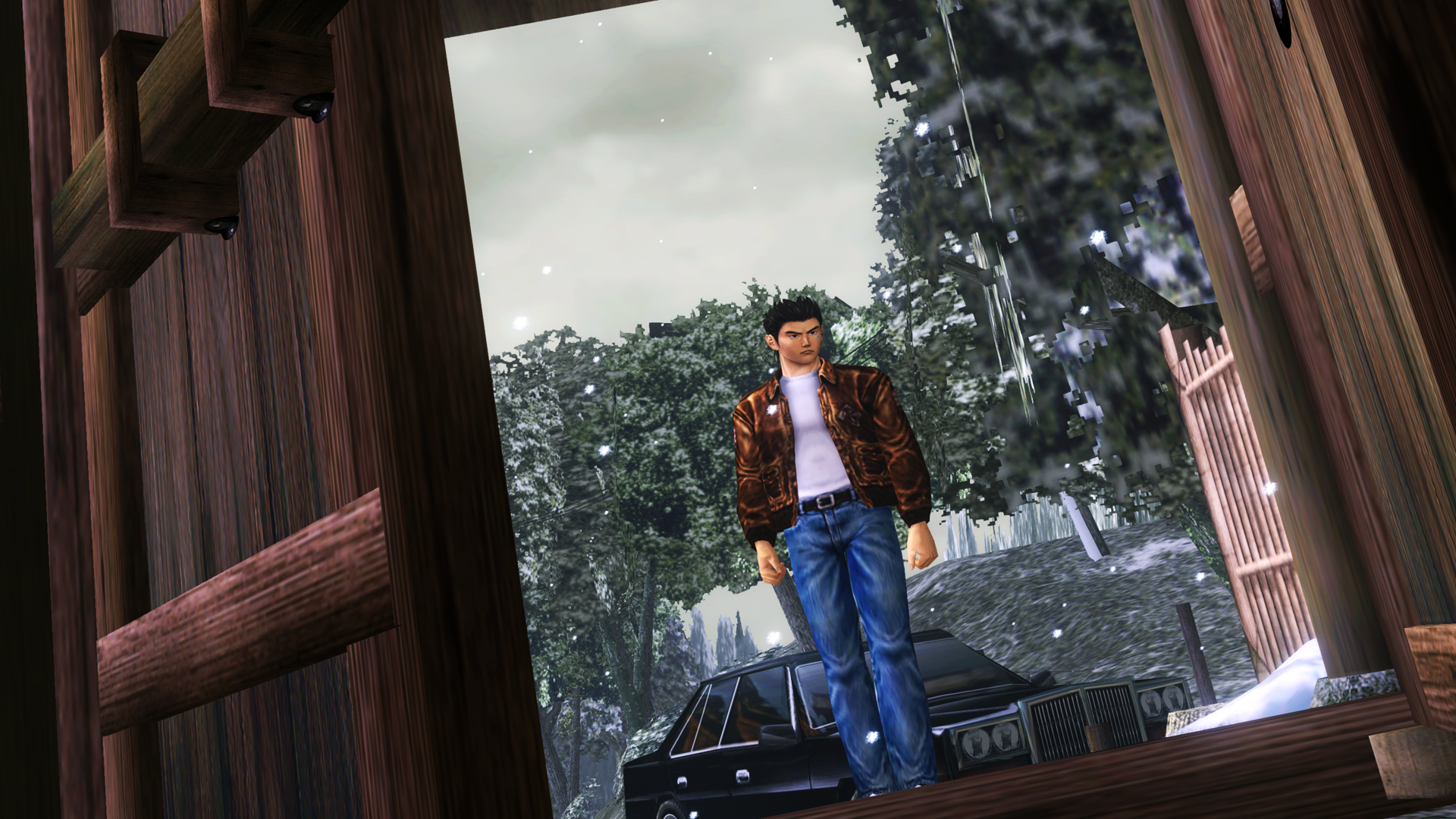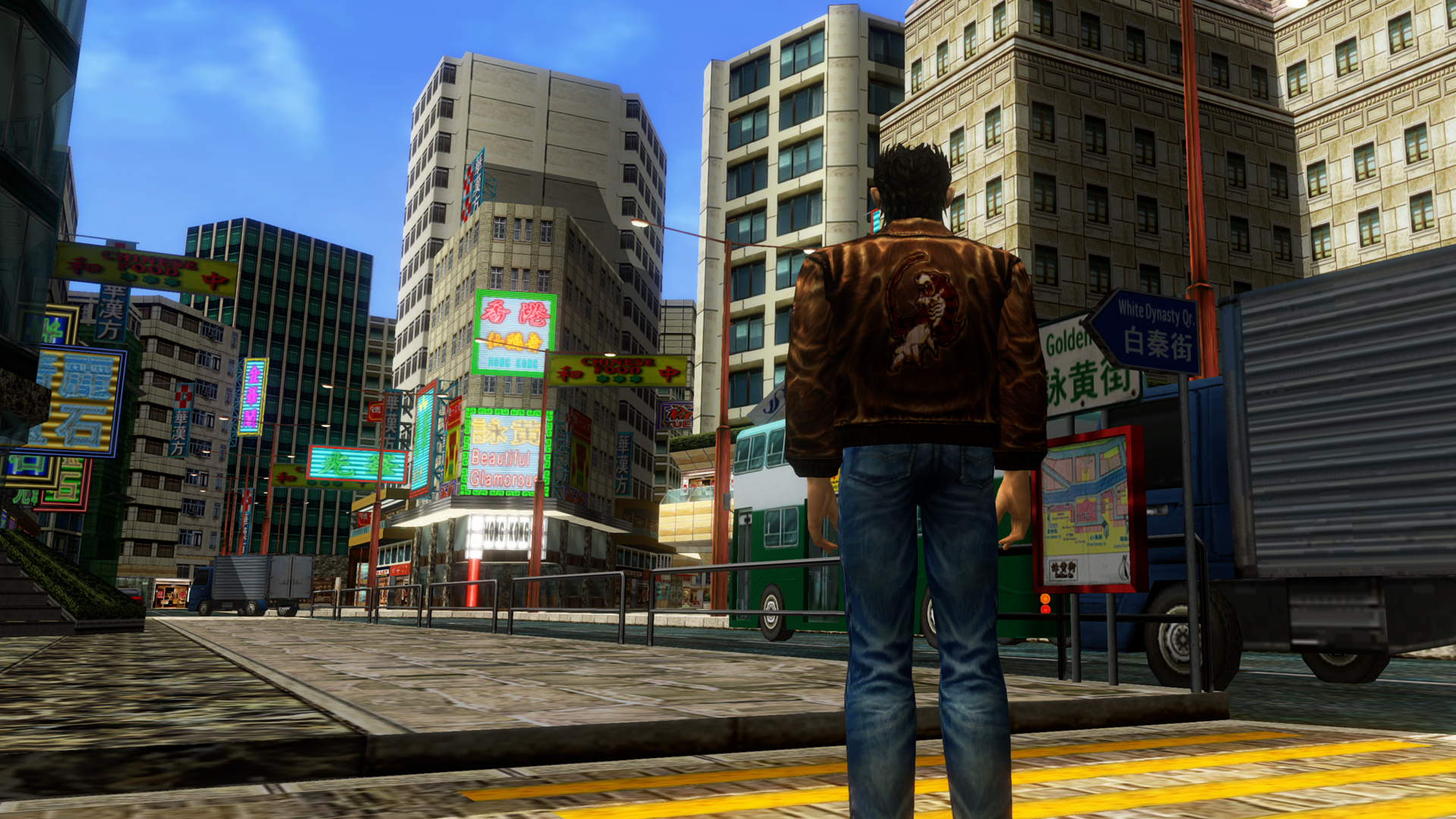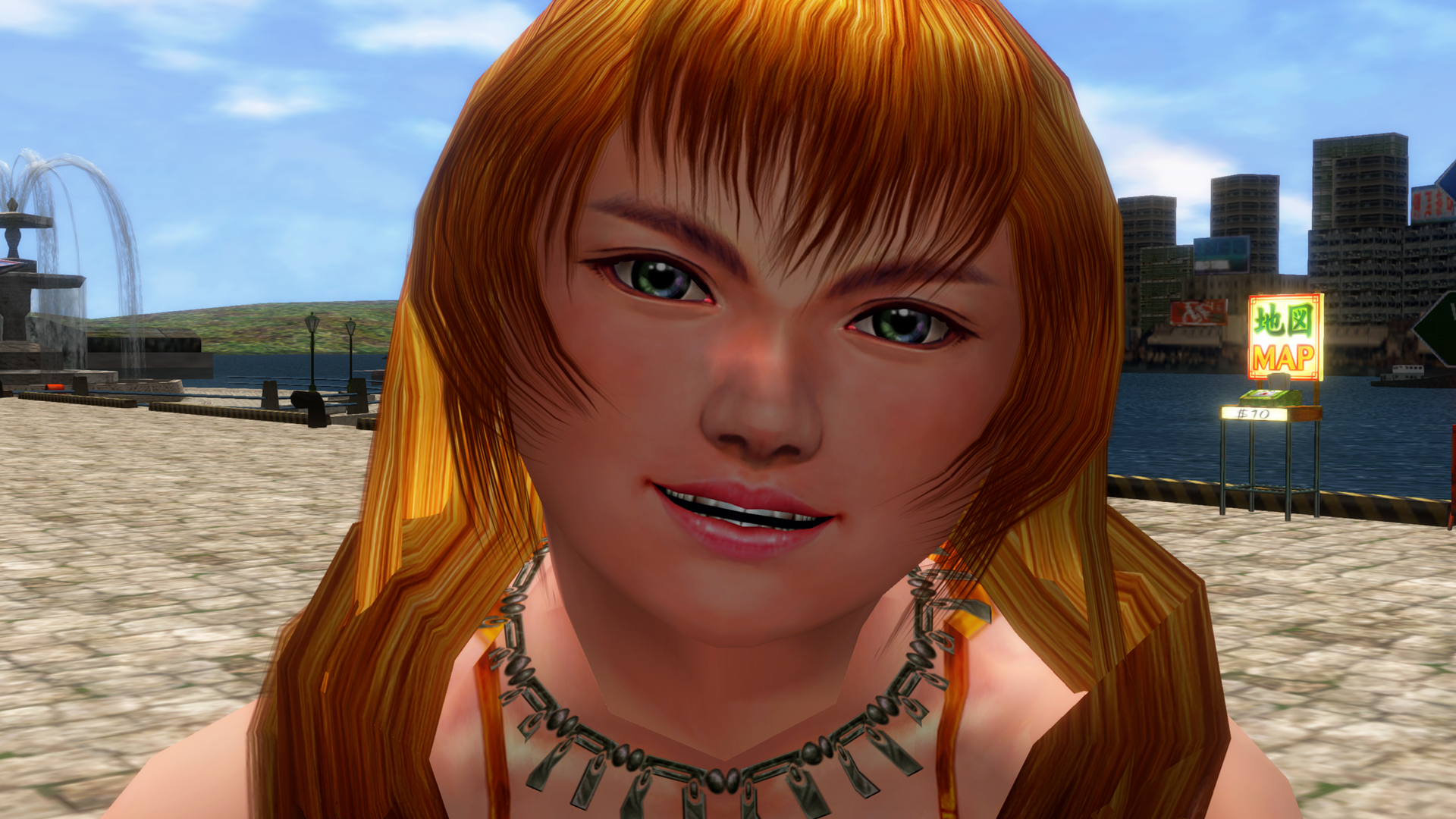Our Verdict
A weird, beautiful, melancholy martial arts adventure. Flawed, but an unforgettable, singular experience.
PC Gamer's got your back
What is it? Part revenge epic, part teenage life simulator.
Expect to pay £25/$30
Developer D3T/Sega AM2
Publisher Sega
Reviewed on GTX 1080, Intel i5-6600K, 16GB RAM
Multiplayer None
Link Official site
Buy it Steam / Humble
For years a Dreamcast has sat dutifully under my TV. Because, until now, Sega’s ill-fated console was the only way to play the original Shenmue: Yu Suzuki’s bold, divisive martial arts adventure that was, at one time, the most expensive videogame ever made. But I no longer have to endure the whirring and grinding of the Dreamcast’s GD-ROM drive, or those endless, achingly slow load times, because now I can, finally, play Shenmue on PC.
It’s 1986 and on a bleak, snowy November day, teenager Ryo Hazuki witnesses his father’s murder at the family dojo. Swearing revenge, he dedicates his life to finding the man responsible—a mission that takes him from the streets of Yokosuka, Japan to the sprawling metropolis of Hong Kong, and beyond, across two huge, ambitious, and idiosyncratic games. Many of the features that were considered groundbreaking back in 1999 may seem quaint by modern standards, but almost twenty years after it was first released, Shenmue is still an experience you can't get from any other game.
The first game is set in a small corner of Yokosuka, including the suburbs of Sakuragaoka and Yamanose and Dobuita, a busy high street with shops, bars, restaurants, and arcades. It’s the 1980s after all. Ryo doesn’t know who killed his father—only that he’s Chinese, wears an elaborate silk coat with a dragon on it, and drives a black car. And so, armed with this information, he wanders his hometown looking for clues. Much of your time in Shenmue is spent on the street asking people questions. Most of them won’t know anything, but the ones who do will trigger further lines of questioning, slowly unravelling the story and leading Ryo down an increasingly dark, dangerous path.
You can go shopping, feed an orphaned kitten, or play Space Harrier at the local arcade
But one of Shenmue’s many contradictions is that, despite this urgent, driven quest for vengeance, it’s a slow, peaceful, and thoughtful game. As much as it’s an epic martial arts adventure, it’s also a painstakingly detailed and wonderfully mundane life simulator. If your investigation hits a brick wall or you have to wait till evening or the next day to continue it, there’s no sudden fade to black or time skip. You have to while the remaining hours of the day away and ensure you get back home and in bed at a reasonable hour, otherwise you’ll face a gentle scolding from your concerned housekeeper and mother figure, Ine-san.
Yokosuka may be small, but it’s a remarkably rich, detailed space, offering numerous ways to kill time. You can go shopping, feed an orphaned kitten, play Space Harrier at the local arcade, work on your capsule toy collection, or practice your moves in the dojo. Strangely, these slow, uneventful moments are among the most memorable in Shenmue. Simply living the life of an aimless Japanese teenager is incredibly compelling, and later on the game’s love of the mundane reaches its peak when Ryo gets a job at the harbour as a forklift driver, which you actually have to do, picking up crates and ferrying them between warehouses. And you better make sure you meet your quota or the boss will dock your wages. It’s gloriously unnecessary, but the kind of grounded escapism that makes Shenmue so bewitching.
But sometimes you’ll investigate a clue that leads to something more traditionally exciting. Another of Shenmue’s beautiful contradictions is how Ryo is a soft-spoken, good-natured, gentle soul, but also a skilled martial artist who can kick the shit out of anyone who crosses him. His pursuit of Lan Di, his father’s killer, leads to run-ins with local criminals, biker gangs, and other shady types, which is where the combo-based, Virtua Fighter-inspired combat comes into play. There’s a huge variety of moves to learn and master, and battles range from one-on-one fights with powerful foes to multi-enemy brawls. But violence is always a last resort for Ryo, which makes those relatively rare moments where a fight breaks out even more impactful.
Trouble usually finds Ryo at night. By day, Dobuita is a lively, bustling shopping district, but as darkness falls the shops close, the bars open, and the place takes on a very different ambience. Drunks stagger down the narrow streets and menacing characters lurk in the shadows. But despite this, it’s one of the cosiest, most atmospheric settings I’ve encountered in a videogame. Cute details such as people using umbrellas when it rains, Christmas decorations appearing as you move into December, and snow piling up on the streets make Yokosuka feel a real, living, evolving place. You can even set the weather to accurately reflect actual meteorological reports from the region in the winter of 1986—another example of the game’s absurd attention to detail.
Keep up to date with the most important stories and the best deals, as picked by the PC Gamer team.
As you walk along the sleepy, quiet streets, snow falling gently from a grey, overcast sky, it’s absolutely transporting—and, importantly, sad too. Shenmue is a deeply melancholy game, and there’s a tragedy to Ryo sacrificing his teenage years, his safety, and his loved ones to single-mindedly pursue a man who could probably kill him in the blink of an eye. Ryo’s relationship with Nozomi, a local girl who cares deeply for him, is absolutely heartbreaking, because his thirst for revenge makes him utterly oblivious to her kindness. It’s an extremely emotional game, even if the voice acting is terrible to the point of being comically surreal. Everyone sounds stiff and bored, or wildly overacts, which is, honestly, a big part of the game’s weird, inscrutable charm.
And then there’s Shenmue II, which sees Ryo leaving Yokosuka behind and travelling to Hong Kong. Although the fundamentals of the game are pretty much the same, the shift from a handful of small, intricate streets to a massive, modern city makes the sequel feel radically different. From a character perspective this is fantastic. You get a palpable sense of being a stranger in a strange land. You have no friends, very little money, and no solid leads to follow up. But this is a setting that feels less detailed, atmospheric, and intimate as a result. It’s still an impressive creation and has a grand sense of scale, but compared to Yokosuka, it’s harder to fall in love with.
Everyone sounds stiff and bored, or wildly overacts, but it's part of its charm
Districts include Aberdeen, a poor area where you can find gambling parlours and dive bars, and challenge bored sailors to arm-wrestling matches for money. There’s the affluent Golden Quarter, where restaurants and boutique stores can be found, as well as an arcade with a playable Out Run cabinet. And the White Dynasty Quarter is home to a busy marketplace and bars where you can earn a few extra dollars playing darts against people. There are also part-time jobs to take on in Shenmue II, including lugging crates around Fortune’s Pier and manning a Lucky Hit gambling stand. But these aren’t even half as enjoyable as the original’s forklift driving, making working in the sequel feel like a chore.
Once again, Ryo spends the bulk of the game wandering the streets, interrogating people, and following leads—but now there are hundreds more people to talk to, which can make this aspect of the game feel slower and more laborious than in the original. Luckily there are a few quality of life improvements, including NPCs who will generously walk you to a location you’re looking for, and the ability to fast forward the clock instead of hanging around waiting for an event to trigger or a shop to open. Shenmue II also occasionally lets you choose from a range of topics when speaking to someone, which makes the conversations feel a little more interactive.
One thing I really love about both Shenmue games is the lack of hand-holding. There are no objective markers pointing the way: just a few lines in Ryo’s notebook about what lead to investigate, or what to ask about, next. As an example, early in the first game you have some Chinese writing that you need to translate. You can ask around town and someone will eventually point you to a local Chinese restaurant: or you can draw that conclusion yourself and find the restaurant without any help. It’s a game that rewards paying attention to your surroundings and thinking logically—although, admittedly, the vastly increased size of Shenmue II can make doing so a lot more difficult.
Ryo eventually leaves Hong Kong and a little of the quiet intimacy of the first game is restored. He journeys to Kowloon, a ramshackle, self-governed Chinese city based on the real-life Kowloon Walled City. Then, later, to Bailu Village in an idyllic forested region called Guilin. Neither reach the heights of Yokosuka in terms of world-building or atmosphere, but the change of scenery is a welcome one—especially in such a long game. You can finish the first Shenmue in 15-20 hours, but you’ll need at least 35 to get through this hefty sequel. The story takes some turns in these later sections that dilute the grounded feel of the series somewhat, and there’s a general feeling in the second game that Sega bit off more than it could chew in terms of scale and scope.
This solid PC version is, happily, incredibly faithful to the source material. I’m glad Sega chose not to dramatically overhaul the visuals, because they’re a vital part of the game’s distinct character. But it has been prettied up a little, with a crisp HD interface, anti-aliasing, and some bloom lighting. As a fan, being able to enter buildings without an eternity of loading, save anywhere, select the original Japanese voice acting, and move with the analogue stick (in the first game) are massive improvements—and ensure I never have to turn my Dreamcast on again. Sorry, old friend. The important thing is, this re-release looks and feels like the Shenmue I remember, and that’s all I wanted. It is, however, locked at 30fps—a limitation of how the game was scripted, according to Sega. This didn’t bother me, but I know it can be an issue for some.
Shenmue is a strange, meandering, often obtuse series. You spend most of it walking up and down the same handful of streets asking horribly-acted NPCs banal questions. Sometimes you might get to fight someone, but not often. And yet, I love it. I love its passion for the mundane. I love its sad, downbeat tone. I love the detail of its environments. I love it when it snows. I love that stupid rock music that plays whenever Joy is riding her motorcycle. I love asking people if they know where I can find some sailors. I love the music that plays in the MJQ jazz bar. I love that fight on the rooftop as the sun sets over Kowloon. I love forklift racing. And I love how, all these years later, I’ve never played anything else quite like it. You might not love these things yet, but you will.

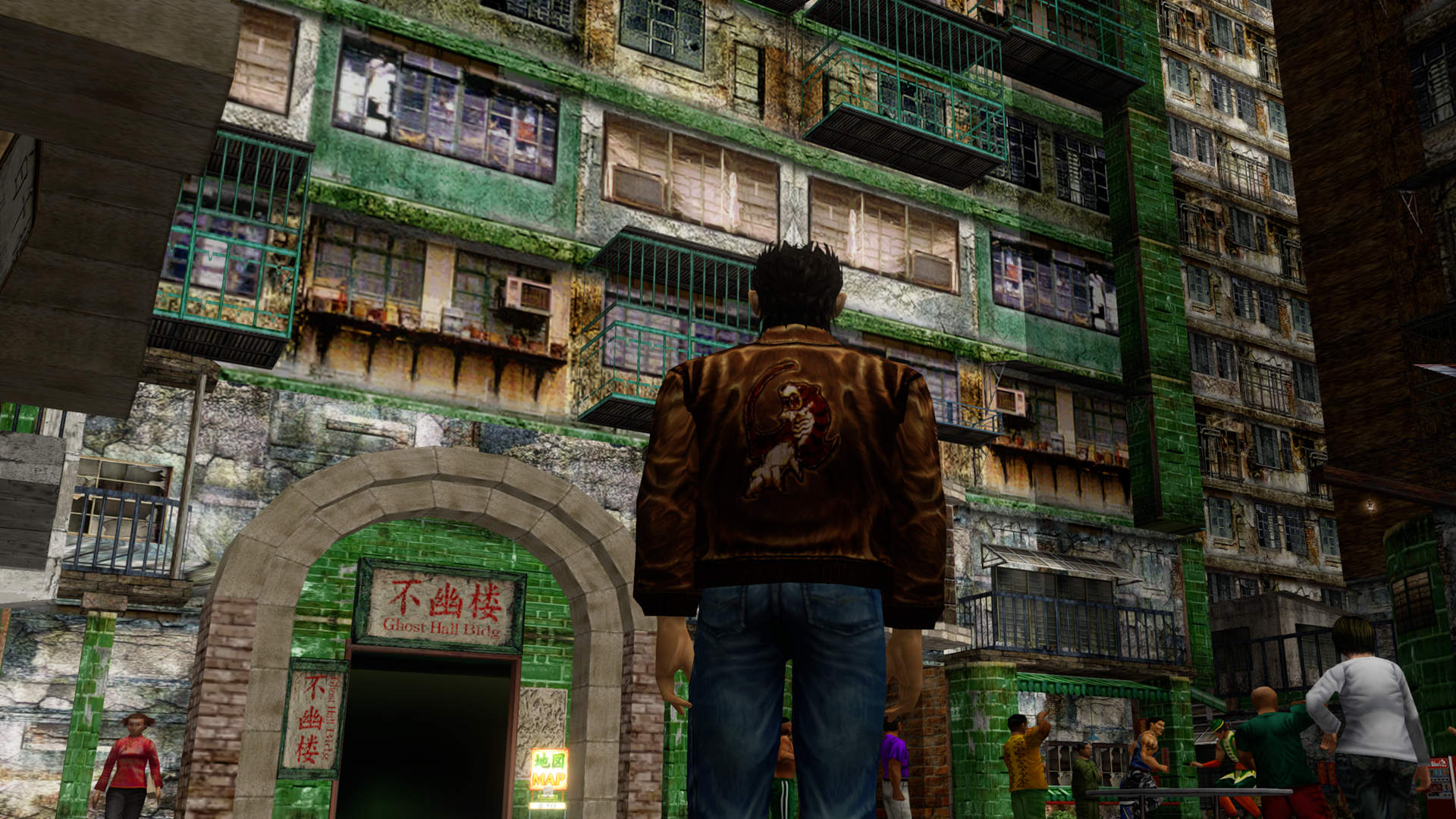
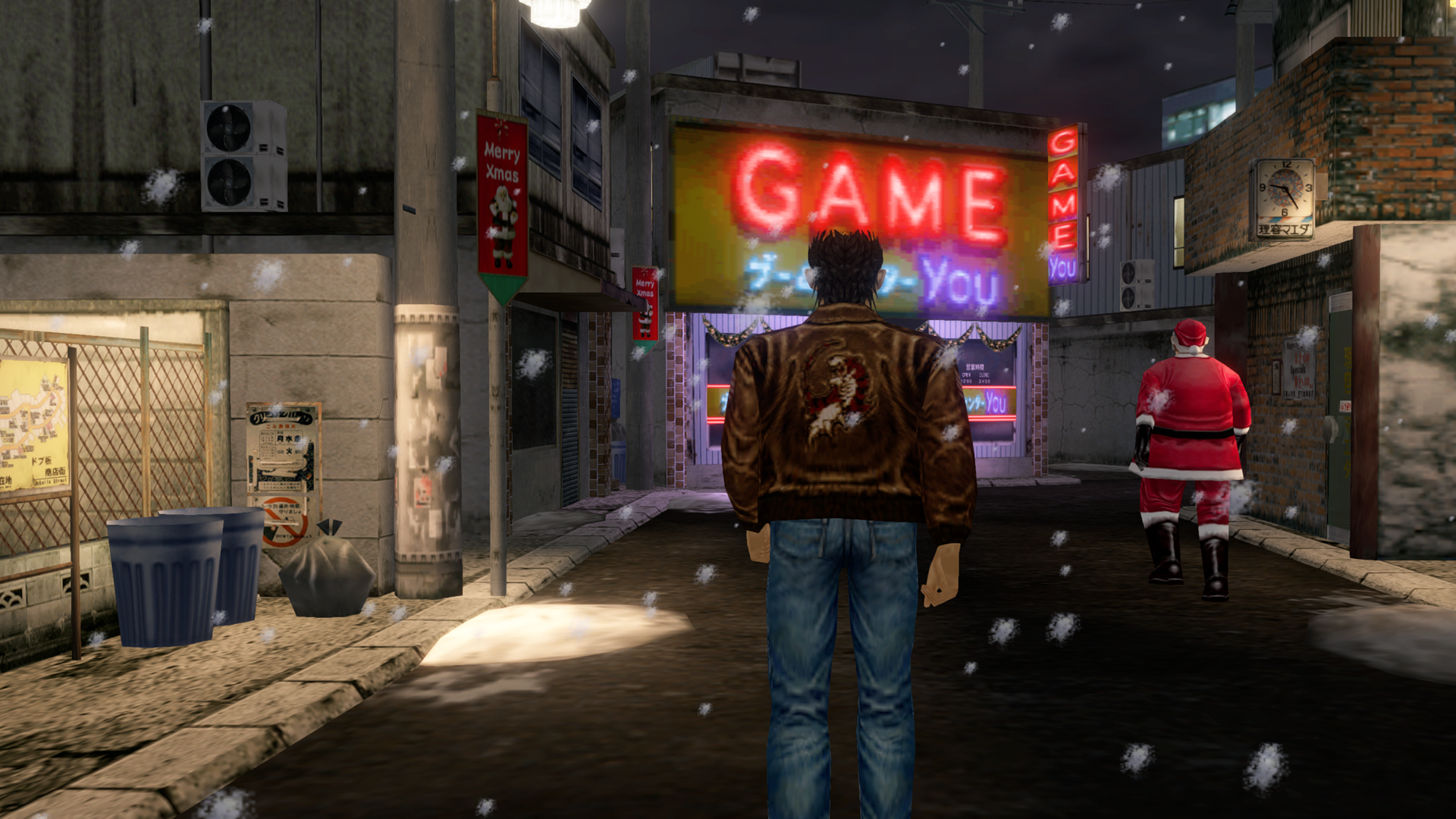
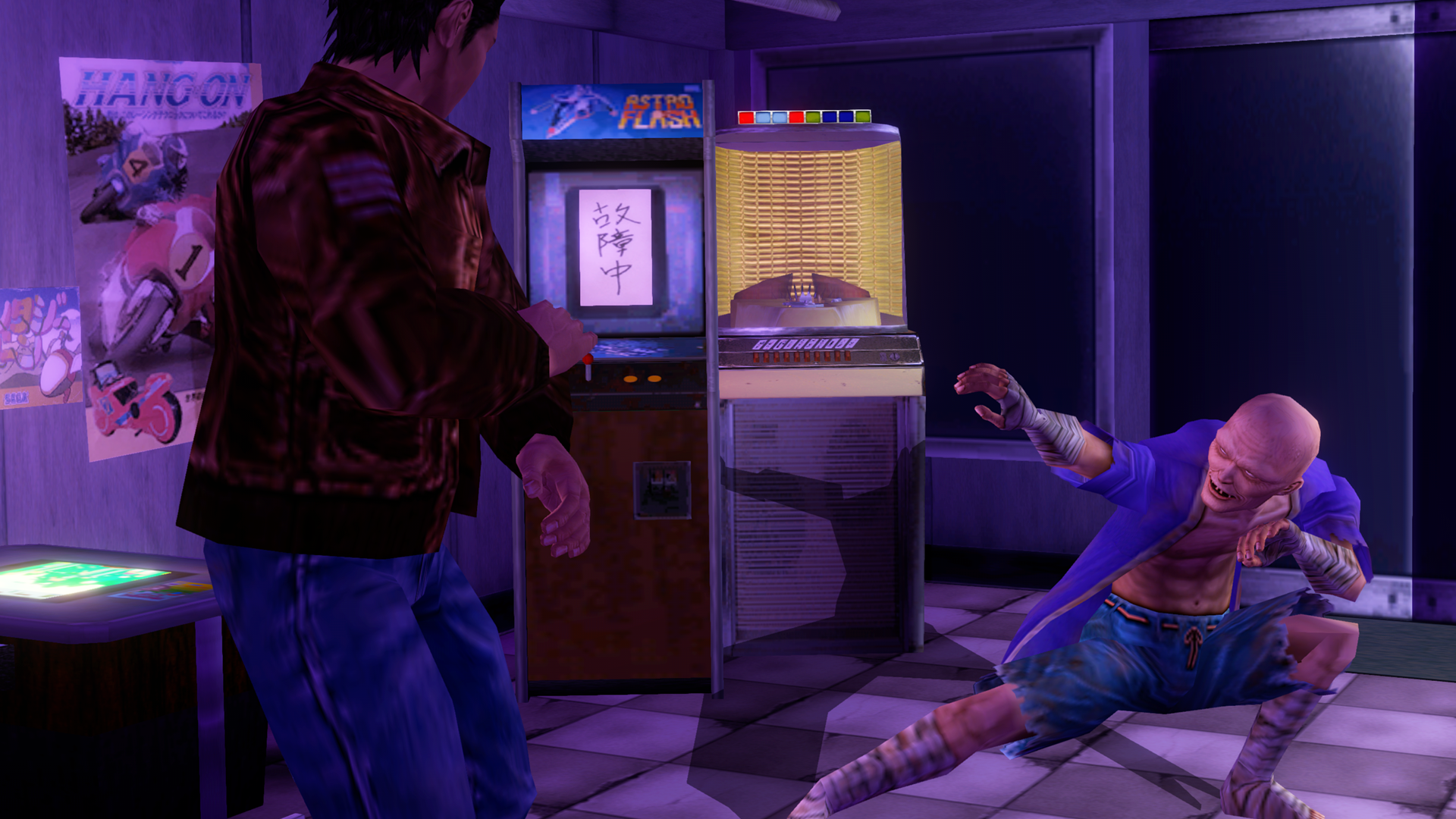
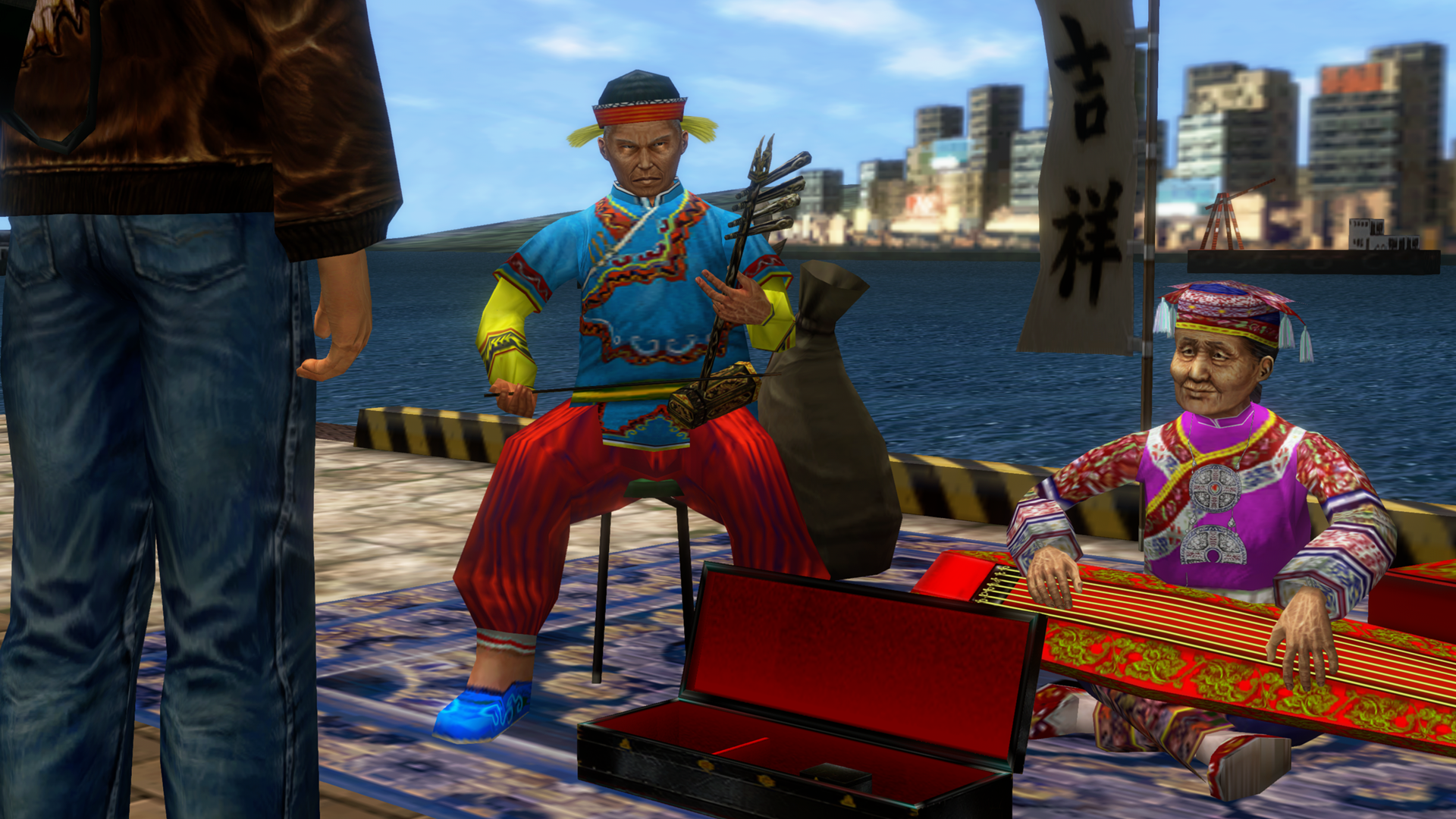
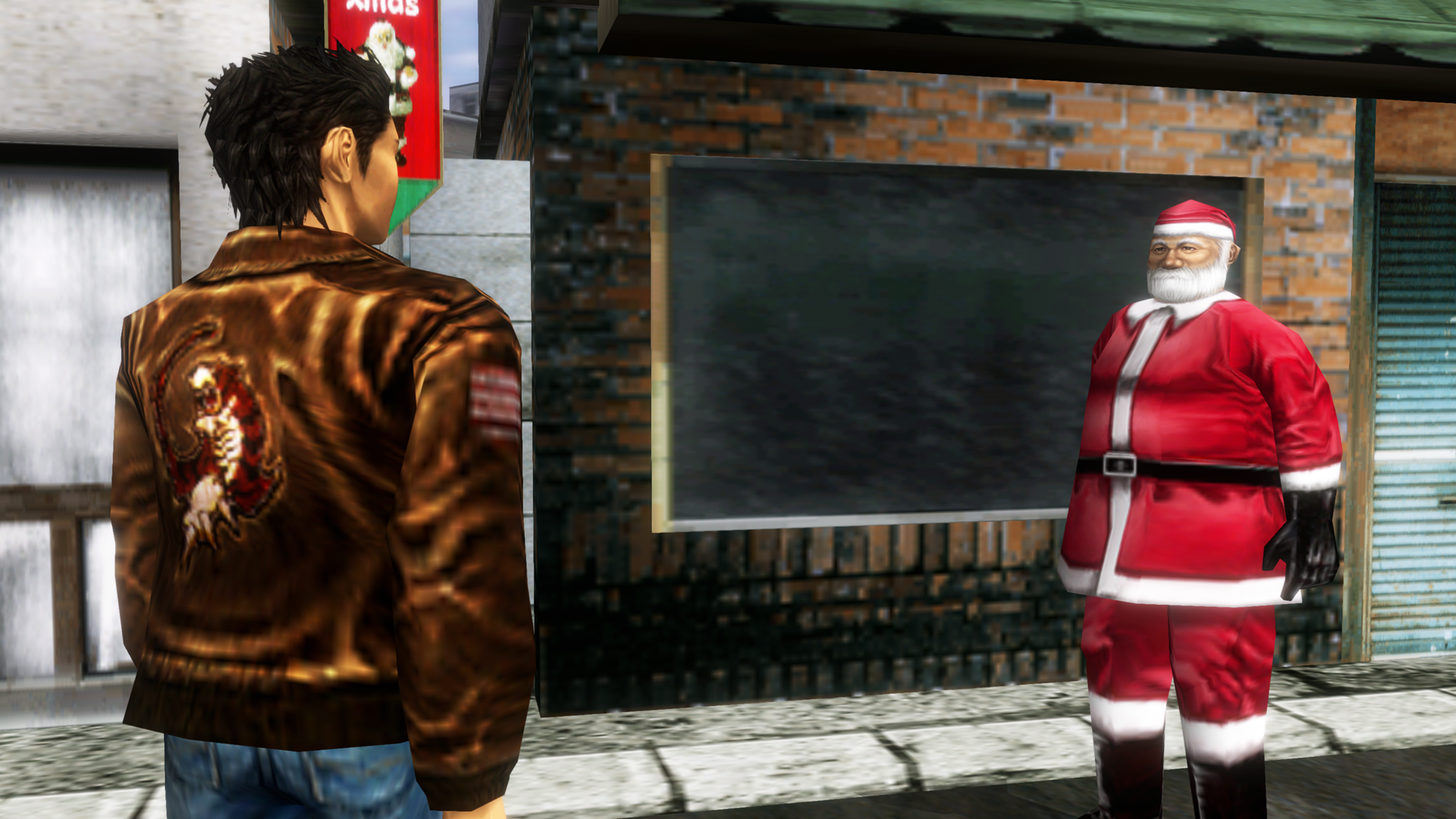
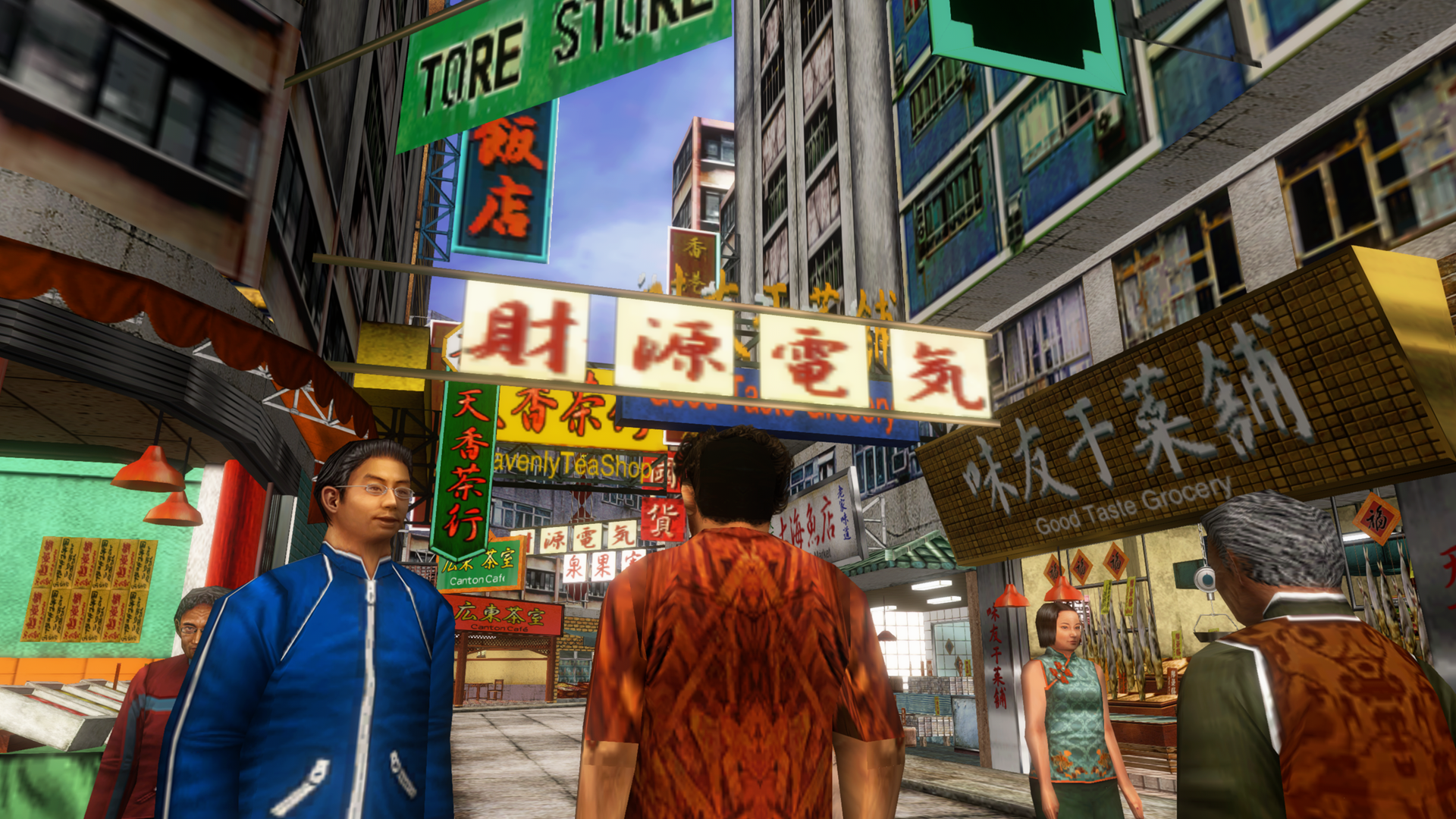
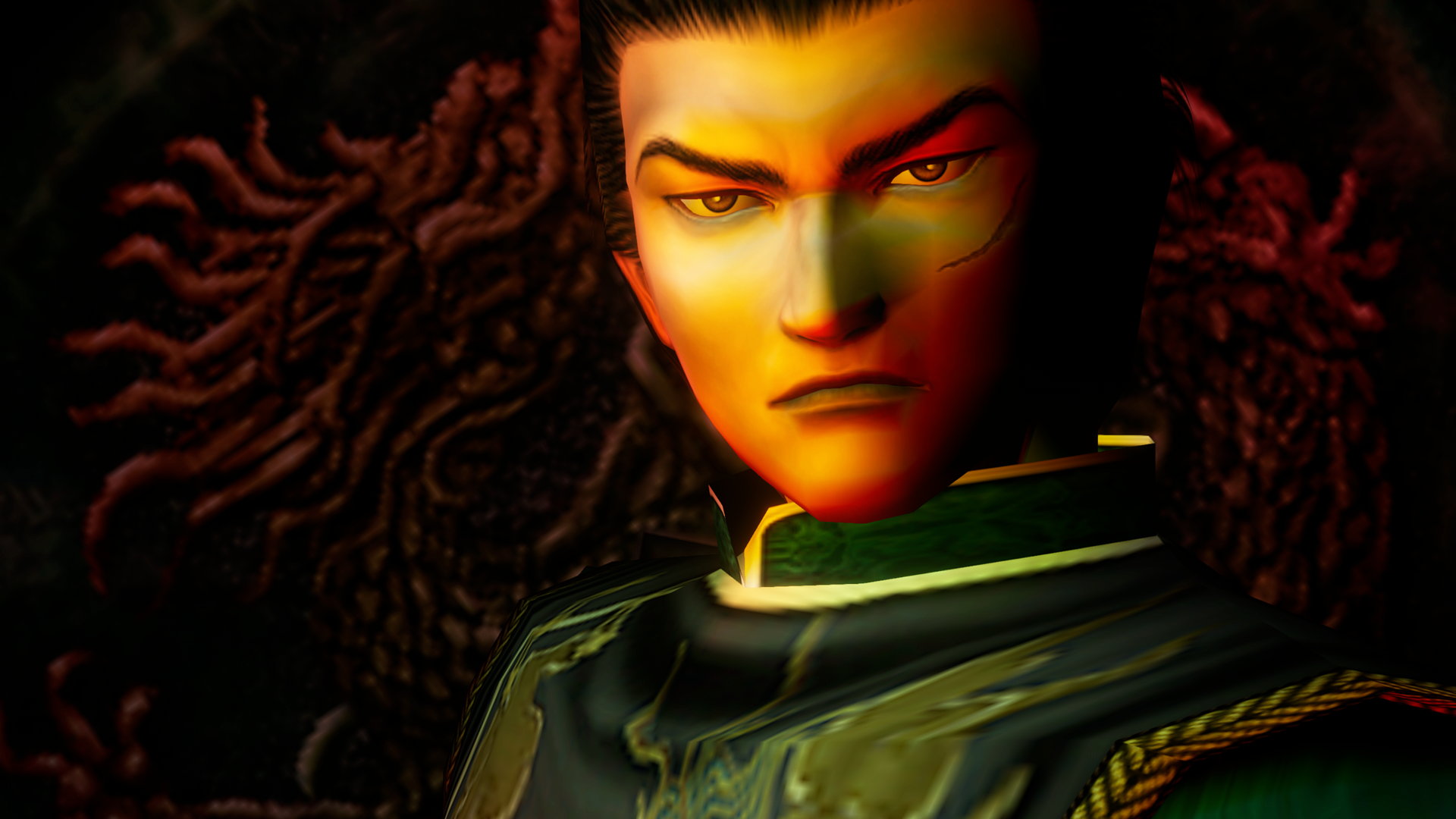
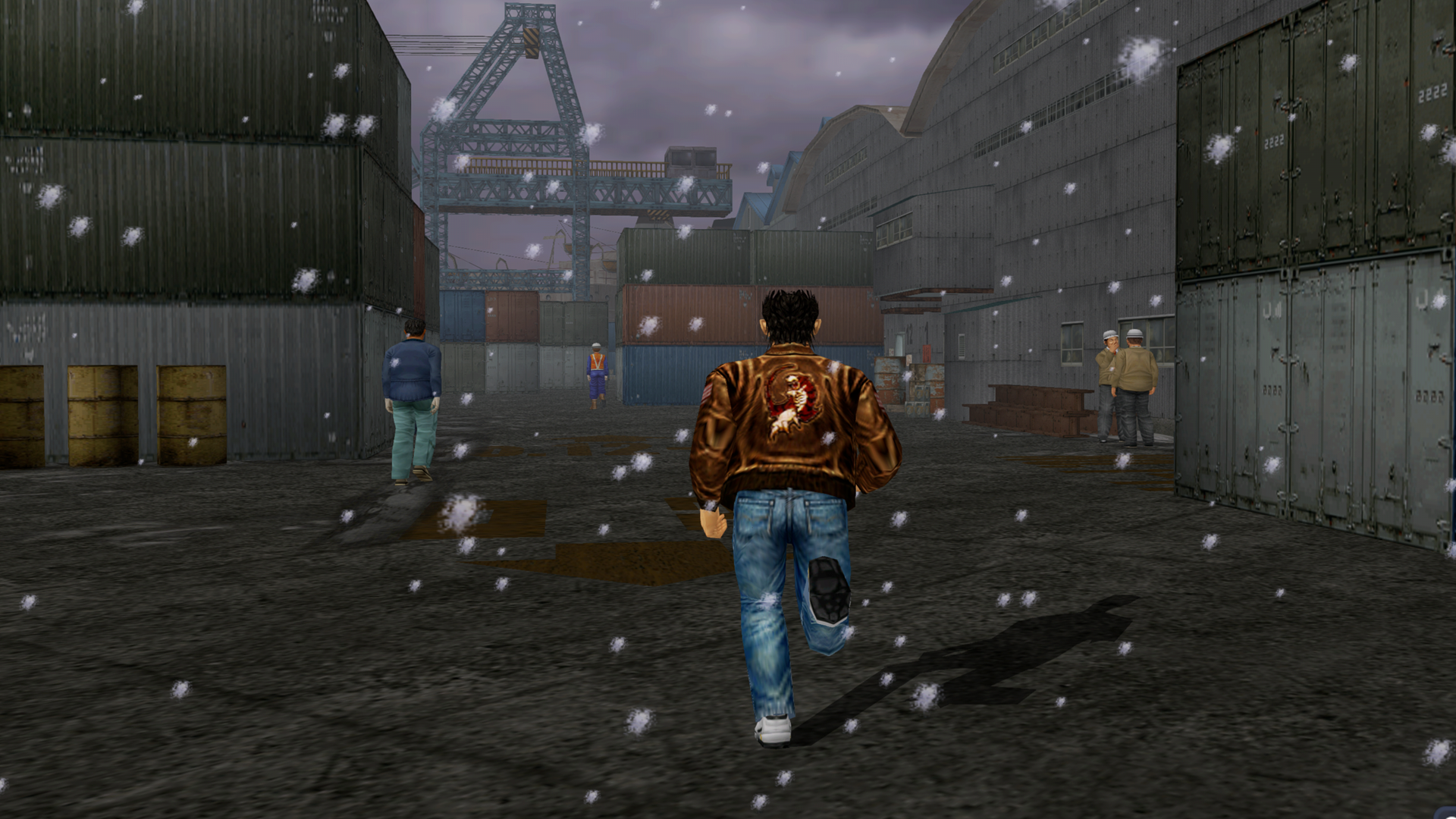
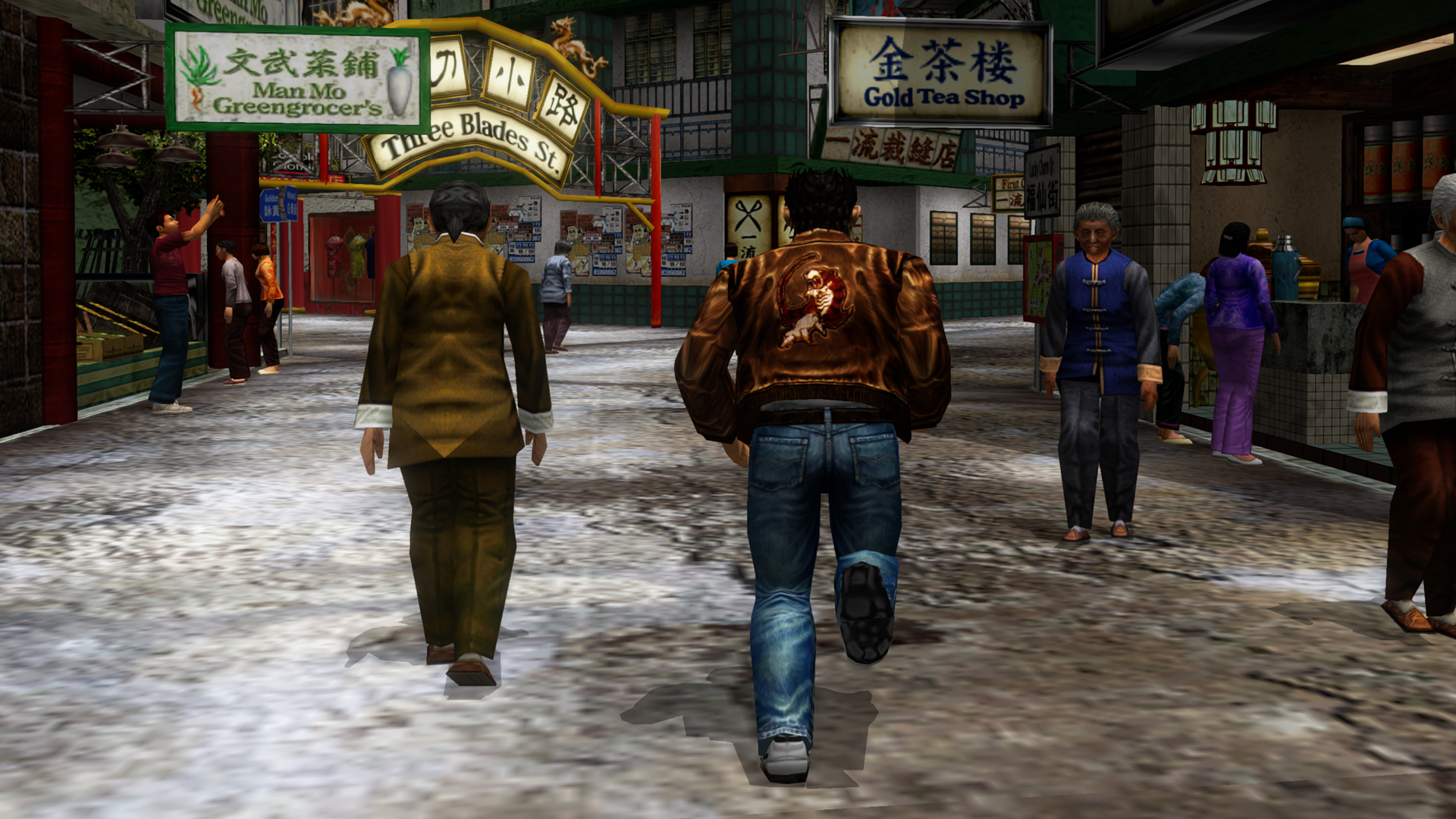
A weird, beautiful, melancholy martial arts adventure. Flawed, but an unforgettable, singular experience.
If it’s set in space, Andy will probably write about it. He loves sci-fi, adventure games, taking screenshots, Twin Peaks, weird sims, Alien: Isolation, and anything with a good story.
